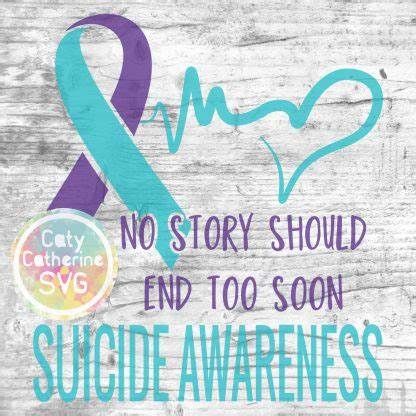September is Suicide Awareness Month!

It is National Suicide Prevention Month!
Across the nation September is recognized as National Suicide Prevention Month with the goal of raising awareness about suicide and educating the public about the warning signs.
According to the CDC, between the years 1999 and 2019 suicide rates increased by 33%, with rates varying for different races/ethnicities, ages and other factors (CDC, 2019). The US Department of Health and Human Services Office of Minority Health reports that in 2019, suicide was the second leading cause of death for American Indian/Alaska Natives between the ages of 10 and 34 years old. The rates of suicide for AI/AN adults is 20% higher compared to non-Hispanic whites. (HHS.gov, 2019). These national rates and it is important to keep in mind that the degree to which suicide impacts tribal communities can vary depending on the community and the area people are living in. Historical trauma as a result of genocide, decimation of culture, assimilation and a history of abuse, plays a role in these high rates of suicide.
While these numbers are heartbreaking, one of the most important messages that should be reiterated when discussing suicide is: suicide is preventable.
Suicide is preventable. Not addressing the issue of suicide and not being aware of the warning signs prevent many people for getting the vital resources they need.
The “It’s Up to Us Riverside” campaign lists these signs. It is important to keep in mind these may not be all the signs and each individual experiences signs differently. One does not need to have all these warning signs to have thoughts of suicide.
- Talking about death, wanting to die, and/or suicide
- Looking for ways or means to kill oneself, such as searching online or buying a gun
- Talking about feelings of hopelessness or trapped.
- Talking about being a burden to others
- Increasing the use of alcohol or drugs
- Behaving recklessly
- Sleeping too little or too much
- Withdrawing or isolating
- Showing rage and/or talking about seeking revenge.
- Displaying extreme mood swings
How you can help
- Learn the warning signs (listed above)
- Reach out and stay involved – keep checking in on loved one’s especially those who have expressed distress or who you’ve noticed have isolated or withdrawn from their social connections
- Start the conversation – asking someone if they are thinking about suicide will not give them the idea. This is a myth. Ask someone who you are concerned about if they are having thoughts of killing themselves.
- Be direct and ask questions – an example could be “are you thinking about ending your life?”
- If you think the person is suicidal: stay with them, listen and take them seriously. The National Suicide Prevention Lifeline 1-800-273-8255 is a great place to start with getting resources and talking about what they are feeling. This is also a great resource for loved ones and helpers.
Connecting someone to resources and following up with them is a great way to continue to support someone who is struggling with thoughts of suicide. Invite them out to spend time with you. Help them connect to social, cultural and/or spiritual supports. Be a caring and compassionate person to someone who is struggling. Remember, it takes a village.
Resources :
We R Native
https://www.wernative.org/my-mind/mental-health-challenges/suicide
We R Native has videos and information on health topics, such as suicide, relationships, sexual health, cultural topics, life tools and many other resources and information for Native youth. Their well known “Ask Auntie” and “Ask Uncle” question and answer platform, lets youth submit their own questions and also watch videos of questions being answered by Auntie Manda and Uncle Paige.
Crisis Text Line
Text the word HOME to 741741 from anywhere in the US.The crisis text line is FREE 24/7 support for all
ages. The counselors are trained to respond to any crisis through a secure online platform.
The “How it works” pages https://www.crisistextline.org/text-us/ shows how the process works. The responding Crisis Counselor can help you move from a place of crisis to a calm, safe place. They also have resources available to send to you for more information.
National Suicide Prevention Lifeline – 1-800-273-8255
https://suicidepreventionlifeline.org/
The National Suicide Prevention Lifeline is a national network of local crisis centers that provide free and confidential emotional support to people in suicidal crisis or emotional distress. This service is available 24/7. This lifeline is available as a support to those in crisis and to those who are looking for guidance in supporting someone in a crisis.
Riverside San Bernardino Indian Health Services (RSBCIHS)
https://www.rsbcihi.org/behavioral-health/
BHS offers confidential and culturally-aligned outpatient services for mental health and substance abuse problems. BHS offers referral services for residential drug and psychiatric treatment. Medication Assisted Treatment (MAT) is also provided for patients with opioid use disorder. Behavioral health personnel are embedded in medical department to provide intervention that address life style and mental health concerns. Telehealth may be requested and utilized for most mental health services
References:
https://up2riverside.org/learn/warning-signs-for-suicide/
https://minorityhealth.hhs.gov/omh/browse.aspx?lvl=4&lvlid=39
https://www.cdc.gov/suicide/facts/index.html